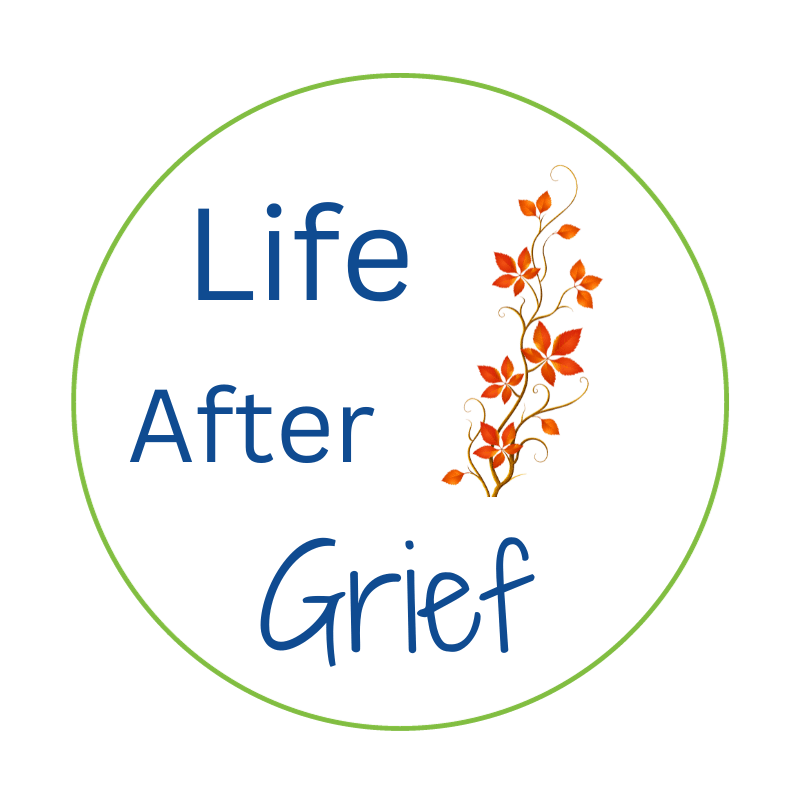
Hello,
Everybody grieves. Someone or something at some moment in our lives. Sometimes it is sudden and unexpected. Other times, our grieving can last months or even years.
In the aftermath of a loss, with limited energy and ability to focus on details, we need to figure out what to do next.
Although there are many incredible grief support resources, in-person and virtual, 1-on-1 and group, general and specific, it’s a patchwork of options with no clear guide through the chaos.
The problem is that everyone is different and no grief journey is the same. Grief is not linear, lasts a long time and the challenges keep changing. They may be rifts in relationships, difficulty getting work done, too many feelings, lack of trust, confusion about who you are now, feeling abandoned by friends and family, and despair about the future, to name a few.
*****
In 1969, Elisabeth Kubler-Ross in On Death and Dying, described the 5 stages of grief as denial, anger, bargaining, depression and acceptance.
In the 1970s, psychiatrist, Colin Murray Parkes, and psychologist, John Bowlby described the 4 stages of grief as shock and numbness, yearning and searching, disorganization and despair, reorganization and recovery.
We can’t even agree on the stages of grief. No wonder it’s confusing!
*****
Common grief support networks and resources include:
Family, friends, colleagues
Faith communities - churches, synagogues, mosques
Hospice organizations and funeral homes
Therapists, psychiatrists, psychologists
Social workers, financial consultants, lawyers
HR in the workplace
Local (state/city) and National (.gov) resources
Grief coaches and grief-specific support groups
Movement, nutrition and sleep experts
Websites to Move Forward After a Loss include:
Clarity Is Your Superpower
You must ask the right person for what you need specifically to get it.
Clarity is your superpower.
Clarity in identifying exactly what you need right now
Clarity in discovering the right person to ask who can provide it
Clarity in communicating so clearly they can’t get it wrong
What do you need help with?
If you feel alone, maybe a hug or a call or an invitation to get together
If you are overwhelmed by paperwork or clutter, maybe someone to keep you company and help you get it done
If you need help with a will or investments or real estate, maybe a lawyer or a broker or a financial consultant
I got a hug from the doorman one day when I felt desperately lonely. I asked friends to throw out David’s aftershave and cologne (anything that held his smell) while I cowered at the far end of the apartment. I connected with friends who were OK if I laughed or cried equally.
What I discovered is that nobody would offer any help if I was too vague or communicating like a victim with guilt or shame. It also helped if I asked a person who could give me what I needed relatively easily.
What Is the Best Way to Ask and Receive?
3 Essential Elements to Ask and Receive What You Need
1) Who are you being? - a resourceful person usually, who needs a little help right now or a victim, ashamed to be struggling, unable to do it alone
Asking is uncomfortable for most people. It is hard to open up and feel that vulnerable. We operate as if there was a scale and receiving too much would tip the relationship off balance. We fear owing more than we can give back. When I was grieving, I had no idea when I would feel whole and able to contribute anything to anyone again. I had to remember that nobody goes it alone and thrives. I had to trust that eventually I would make it through the grieving, even though I could barely imagine the numbness and pain ending.
*****
2) What are you asking for?
Make clear requests and be specific. People will try to guess what you want and need, and give advice. Unless they have been listening closely to you, that seldom goes well. What you need in the first months after your loss is very different from challenges you will encounter in the 2nd year and beyond. The more detailed you can be in your ask, the more likely you will get it. It’s important not to be invested in their, “Yes,” or “No”. It’s not personal and, as you are free to ask anything you want, they are free to decline or counter too. That keeps relationships intact.
Sometimes, a person will make a counterproposal and say “Yes,” with conditions. Remember that, even though you asked, if the conditions are unacceptable, you can say, “No”. I wound up doing that myself once or twice - super uncomfortable because I don’t like conflict even when I feel great.
*****
3) How do you open up to receive?
It’s awkward to have to ask someone for help, especially family and friends. You may worry what they will think of you in the future. Will they judge you? This is particularly true when asking for money because most people have had uncomfortable experiences with money, which have nothing to do with you. Make sure that the person is able to give you what you are asking for relatively easily. It ups your chances of success! Remember that there actually is no scale. I discovered gratitude and a “Thank you,” was enough.
*****
Protecting your Relationships Is Paramount
It’s easy to get feelings hurt because we are used to being self-reliant, able to get things done on our own. When we grieve, that gets much harder. In most areas of life, we need extra help and, since one of the biggest complaints bereaved people have is feeling abandoned, some of the people we count on may have left us.
On the asking side, we may feel uncomfortable and distance ourselves from the person who did or didn’t say, “Yes”. On the receiving side, we may start worrying that the person will not recover from being ‘broken’. Worry is exhausting and takes energy to combat. The challenge is to keep people’s perceptions of us positive. After a loss, people change irrevocably. Friends and family would prefer they ‘bounce back’ to who they were before. It often causes friction.
Once you know what you want, you can look through your networks and resources to find the right people to deliver what you need. Create a filter to screen out what is NOT relevant to providing a solution to answer the problems you are facing. This reduces the chaos and confusion of finding your way through the patchwork of grief support.
*****
If you find the Life After Grief newsletter inspiring, informative or helpful, please subscribe and share the issue with others.
This newsletter issue, The Patchwork of Grief Support talks about how difficult it is to find the help you need when you want it, after a loved one passes away. Obviously, this is not detailed enough to dig into your current challenges right now. Let’s chat.
Schedule a complimentary 20-minute zoom call to talk about how to move forward with more ease on your grief journey. Click the link below: https://thebadwidow.com/ConnectWithAlison.

